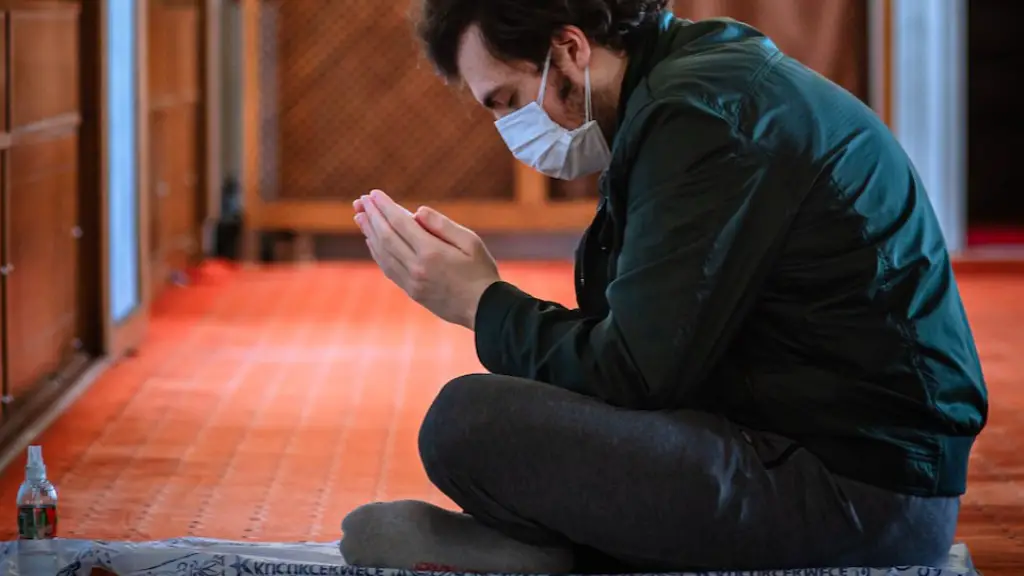History of Birth Control
Birth control is a highly contentious subject in modern society, and a particularly divisive topic for people practicing Christianity. Best estimates about the history of birth control suggest that it has existed since ancient times in the form of condoms, diaphragms, and spermicides. While ancient cultures may not have understood the exact mechanics of sexual reproduction, they appear to have had a rudimentary understanding of the relationship between sex, procreation, and the prevention of procreation by using various contraceptive methods. As such, birth control was often used by people in the ancient world.
The religious implications of birth control began to take shape in the late nineteenth century when the Catholic Church became vocal in its views on the issue. The Church argued that any attempt to prevent a child being born was a sin as it violates the commandment “Be fruitful and multiply” (Genesis 1:28). This also led to a religious and moral opposition to artificial methods of contraception such as condoms, the pill, and the IUD.
Views of Different Christian Denominations
While the Catholic Church has traditionally been the most vocal critic of birth control, other Christian denominations have also expressed varying views on the subject. Anglican churches, for example, have tended to be more liberal in their approach, arguing that the use of contraception can sometimes be justified as a responsible exercise of God’s gift of sexual union in order to prevent social harm. The Eastern Orthodox Church, however, views contraception as one of the worst sins a person can commit, as it involves “the agent of death between lovers” (this phrase is itself derived from Saint John Chrysostom).
On the other hand, some modern Protestant denominations, such as the Episcopal Church, the United Church of Christ and the American Baptist Convention have developed more lenient views of birth control. They believe that contraception can be used responsibly, arguing that it does not have to violate God’s will if it is used to responsibly manage pregnancies, reduce cases of unwanted pregnancy, and combat the spread of sexually transmitted diseases.
Influences of Pop Culture on Christianity
Of course, birth control is not only a topic of theological debate. Popular culture has also played an important role in influencing religious beliefs, with television and film most often presenting birth control in a light that could be perceived as contrary to Christian teachings. While this is perhaps a sad reality, it is important to note that it does not necessarily reflect the views of the majority of Christians. That being said, the issue has long divided and continues to divide religious communities.
This is in part due to the fact that there are multiple interpretations of the Bible in regards to the use of contraception. Some may argue that it is not a sin to practice birth control, while others may feel more strongly about the immorality of this particular act. This can make for a difficult situation for many, who must reconcile their own religious beliefs in relation to birth control.
Arguments for and Against Birth Control in Christianity
The argument for those who believe that birth control is not a sin in Christianity centers around the notion that it is possible to have sex for reasons outside of reproduction. Some therefore argue that using contraception is merely an extension of self-control and discipline, and is a responsible use of one’s sexual energy. Others view contraception as an exercise of restraint, preventing serious immoral excess and maintaining the sanctity of marriage.
On the other hand, those who oppose birth control in Christianity often cite passages from the Bible, such as “You shall not practice contraception” (Exodus 20:15) and the commandment to “be fruitful and multiply” (Genesis 1:28). They believe that these commandments should be taken literally and that any attempt to prevent procreation is a violation of God’s will. They also view any attempt to interfere with God’s natural order as immoral and dangerous.
The Importance of Proper Education
The debate around the morality of birth control in Christianity is likely one that will not be resolved anytime soon. That being said, it is important that young people are educated as early as possible regarding the various moral implications of contraception so that they may be adequately prepared to make responsible decisions when needed. This includes an understanding of the limit and extent of contraception, how it works, how it can be prevented, and any other potential risks associated with its use.
It is also important that young people are encouraged to have open conversations about the subject and to not feel ashamed or embarrassed to ask questions. This will help to ensure that everyone involved is better equipped to make informed decisions and to understand the full scope of this complex and highly charged issue.
The Role of Religion
No matter one’s beliefs on the matter, it is clear that religion and faith have a part to play when considering the morality of birth control. While there are multiple interpretations of religious texts in regards to the subject, it is important to keep an open mind and be willing to put aside preconceived notions in order to foster understanding and promote respect between those of different faiths. Ultimately, each person will have to make a decision regarding their own position on the issue, based on their own sense of morality and personal beliefs.
Public Health Considerations
Additionally, when considering the morality of birth control, it is also important to take into account the public health perspective. Birth control is widely accepted in most parts of the world as an effective way to prevent unwanted pregnancies, reduce maternal mortality, and to promote sexual health. As such, it can be seen as a necessary tool for helping to create a healthier, more prosperous society.
In the end, the debate surrounding the morality of birth control in Christianity is a complex and highly personal one. It is ultimately up to each individual to make their own judgment about the use of contraception, based on their own interpretations of religious texts and personal values. At the same time, it is important to remember that there is much more to the debate than just the questions of morality, and to take into account the public health considerations before making a final decision.
Exploring the Role of Personal Choice
It is also important to consider the role of personal choice when it comes to birth control in Christianity. Many argue that it should be left to the individual to determine how they choose to practice their faith in regards to this issue. After all, each person has their own unique set of values and beliefs, and should be given the freedom to practice them without fear of judgement or criticism.
Ultimately, any attempt to make a blanket statement regarding the morality of birth control in Christianity is likely to be a fruitless endeavor. Each individual will have to come to their own conclusions about the issue, based on their own biblical interpretations, personal values, and public health considerations.
Considerations for Medical Professionals
It is also important for medical professionals to consider their role when it comes to birth control in Christianity. Doctors have a responsibility to provide evidence-based advice that is in line with accepted standards of care and to not impose their own beliefs and values on their patients. Furthermore, doctors should always be willing to listen to their patient’s own views on the issue, even if they do not agree, and to treat each patient with respect and dignity. In this way, they can ensure that all patients are receiving the care they need and deserve.
Exploring Ethics and Decision Making
When it comes to making decisions about birth control in Christianity, it is also important to consider the ethical implications. Ethical considerations are not just relevant to individuals, but also to medical professionals and society at large. As such, it is essential that due consideration is given to ethical principles such as autonomy, beneficence, and dignity when it comes to any decision about birth control.
It is also important to consider the potential consequences of any given decision. For example, an individual who chooses to practice birth control may be exposing themselves to certain risks. It is important to weigh these risks against the potential benefits in order to make an informed decision.
A Difficult yet Meaningful Debate
It is clear that the debate surrounding the morality of birth control in Christianity is a difficult yet meaningful one. It is a topic that is sure to be discussed and debated for years to come, and it is important that those involved are able to approach it with an open mind and willingness to understand different perspectives.
At the same time, it is important to remember that it is ultimately up to each individual to make their own decision regarding birth control in Christianity, based on their own sense of morality and faith. Such a decision should not be taken lightly, nor should it be made without due consideration of the potential risks and benefits involved.



